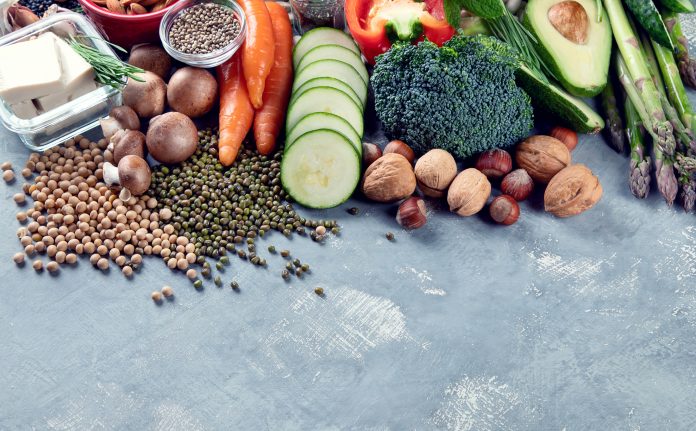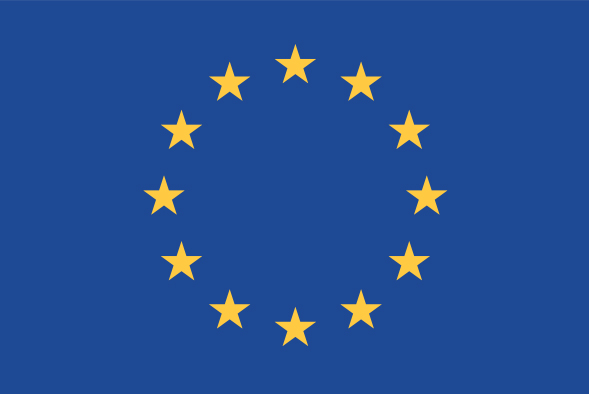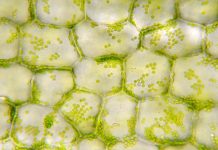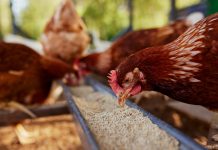The future development of a truly sustainable food system relies heavily on the diversification of protein sources, highlights Dr Emanuele Zannini, Project Coordinator of the EU funded Smart Protein Project
Demand for plant-based protein products is booming, with nearly a quarter of the European population now actively reducing their meat intake and the number of vegans in Europe doubling from 1.3 million to the current estimated figure of 2.6 million within the last four years. And when you include vegetarians, pescatarians and flexitarians, the group in total represent about 30% of the population – meaning that almost one-third of all Europeans are shifting towards a plant-based diet. (1)
But soaring demand raises complex issues, from the nutritional profile of products to the sustainability of ingredient sourcing. Consumers will always demand tasty, affordable and convenient food. Still, we must now also deliver healthy products for humans, animals and the planet, or risk solving one problem by creating another.
The development of a truly sustainable food system relies heavily on the diversification of protein sources. This means shifting away from animal protein and sourcing plant-based protein ingredients that have a desirable nutritional profile and resource-efficient production.
Delivering such plant-based proteins requires close collaboration from leaders in crop breeding, protein processing, food manufacture, regulation and consumer insights. (2)
The Smart Protein Project
The Smart Protein Project is a four-year, €10 million, EU-funded project launched in January 2020 that seeks to resolve these complex priorities by developing the next generation of cost-effective, resource-efficient, and nutritious foods.(4)
With over 30 consortium partners across the full spectrum of the food industry, from crop growers, ingredient suppliers and food processors to retailers and consumer awareness organisations, the project will radically rethink the entire protein value chain.
“Over the next few years, the Smart Protein Project will develop highly innovative, protein-rich food products such as meat, fish, and cheese from plant-based raw materials. The goal is to create products that can be produced commercially, and that are better for the environment, our health, and the climate,” explains the Smart Protein Project Coordinator Dr Emanuele Zannini, from the School of Food and Nutritional Sciences at University College Cork.
Seeds of Possibilities
Breeding and cultivating plants to optimise their nutritional properties has long been a subject of scientific research. Smart Protein will work to characterise, validate, demonstrate and up-scale environmental crop suitability and yields, processing quality quinoa and high protein legumes such as fava bean, lentil and chickpea.
Legumes are widely recognised as a valuable protein source by the food industry and consumers alike, but from an environmental perspective, their use has the potential to increase global food production, enhance soil health and eliminate the requirement for synthetic fertilisers, due to their nitrogen fixing properties. This helps in cutting greenhouse gas emissions.
Ancient grains such as quinoa are also considered an attractive source of protein, whilst also containing a good balance of the essential amino acids required by humans. From an environmental standpoint, quinoa’s resilience to extreme environmental conditions and minimal water resource requirements makes it a sustainable option for many regions and climates.
Protein Processing
Innovation in processing & extracting technologies will play a key role in minimising negative environmental impacts and making protein nutritionally available and digestible.
The Smart Protein Project aims to optimise and demonstrate advanced production systems for high-quality plant-based protein ingredients from the alternative plant protein sources mentioned above in an industrially relevant environment. The dry and wet side streams of protein processing together with side streams from pasta, bread and beer production will then be converted and upgraded to edible protein products using fungal fermentation at solid and liquid state. The outcome will be an increased supply of protein-rich ingredients, with optimal functionality, digestibility and ease of use in large-scale food production applications.
Consumer Acceptance
Plant-based options are no longer a novelty on supermarket shelves across Europe. But just how big is the market for these foods? A new report published by the Smart Protein Project analysed retail data from 11 European countries to reveal exactly how much plant-based consumption increased in the region from 2018 to 2020. Results showed that Europe’s plant-based food industry grew an astonishing 49 % overall in that two-year period, amounting to a total sales value of EUR 3.6 billion. (3)
Beyond this exciting market sizing data, the Smart Protein Project aims to assess the role of market, taste, behaviour and social media on improving consumer trust and acceptance of alternative protein products and processes.
An Exciting Opportunity for a Sustainable Future
Access to safe and healthy diets is a key element of sustainable food systems capable of addressing the UN Sustainable Development Goals and the Paris Agreement. Diversification of protein sources is key to striking a balance between providing nutritious, tasty, affordable and environmentally sustainable foods. Drawing on a diverse range of plant protein sources at an industry level will help avoid intensified pressure on agricultural land, whilst meeting the growing demands of the consumer.
“Key sustainability challenges facing the agri-food industry include improving primary production efficiency without compromising our fragile ecological system,” says Dr Emanuele Zannini. “There is a need to produce more and better with less, and to re-shape the ‘food environment’ in which citizens engage with the food system.”
Smart Protein consists of a highly ambitious and committed collective of partners from large, globally recognised international companies, dynamic emerging SMEs, and world-leading experts from universities and research institutes who are working to harness data, knowledge, processes and products to identify and assess alternative protein sources with applications for sustainable food systems close to the market.
Together we can create alternative protein ingredients and products for humans which have a positive impact on bio-economy, environment, biodiversity, nutrition, food security and consumer trust and acceptance.
References:
(1) VEGANZ (2020) “VEGANZ Nutrition Study 2020”
(2) Oaklands (2019) “Harnessing the Plant Based Movement”
(3) Smart Protein (2020) “The Smart Protein Plant-based Food Sector Report”
(4) Smart Protein (2019) “Smart Protein Grant Agreement”
Please note: This is a commercial profile












